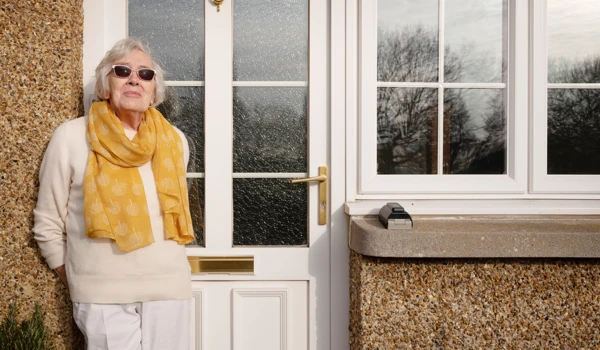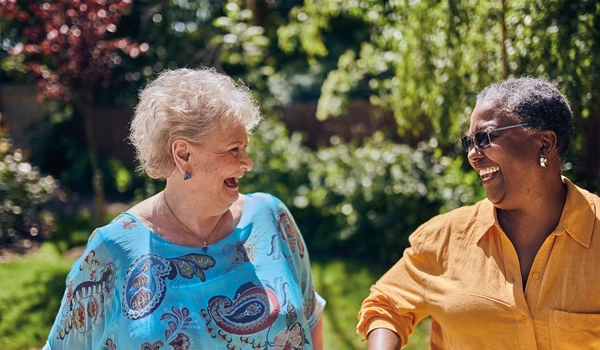Your guide to downsizing in later life
Downsizing is becoming increasingly popular in the UK, with a recent study finding that almost half of over 55s plan to downsize to live in smaller and more affordable accommodation in later life. For some, you might consider downsizing if:
- Your house is too big to maintain
- You’d like to cut monthly outgoings
- You have a spare bedroom or bedrooms which you aren’t looking to let
- Your garden is too large to manage
- You’d like to save money
- You have mobility issues and are struggling to continue living independently
- You are living alone and would like to move somewhere that offers companionship
Planning ahead and making sure you have all the information you need can help make the move into a new home easier and worry free.
What are the advantages of downsizing?
Living bigger doesn’t always mean living better. For many there are big advantages to downsizing – from saving money, which can be used to pursue hobbies or put towards travel, to gaining back precious time once spent maintaining your home.
- Reduce maintenance: Moving into a smaller home will require less upkeep, allowing more time to focus on other aspects of your life.
- Save money: Living somewhere smaller will reduce monthly outgoings as you will likely save money on energy bills, tax, mortgage repayments and other maintenance costs.
- Live closer to family: Downsizing offers the opportunity to move into a home that is closer to family members and loved ones.
- Move somewhere with better links to the community: Whilst the idea of country living is idyllic it can mean having to travel further to amenities or see friends and family. Downsizing may allow you to choose somewhere with better community links, public transport and local amenities.
- Reduce concerns about health and mobility: Living in a large house alone can be daunting if you have mobility or health concerns. Moving into a smaller home, bungalow or supported house with staff can give you peace of mind about your safety and security.
- Companionship: Many people chose to downsize because the death of a loved one has meant they are living alone. Downsizing into supported housing or independent living retirement homes offers you the chance to meet new, likeminded people and revitalise your social life.
Your downsizing options
Moving in with family
If the option is available to you, moving in with family members can be a great alternative to downsizing.
Before moving in with family it’s important to make sure you are all on the same page and want the same things from the move.
Consider how practical it will be living in their house – will your mobility be an issue? Will you have the level of independence you want in later life? Who will look after you if you need care?
Come up with an agreement about paying rent or helping financially towards bills. Be honest and open with family about any apprehensions you may have, and make sure you all agree on what to do if the living arrangements aren’t working.
Remember to be patient with yourself and everyone else in the house - moving back in with family members will be stressful and it may take time for everyone to adjust.
What to keep when downsizing and storage solutions
When moving to a smaller living space, there will likely be personal items that you’ll no longer have the room for. It’s important to go through all of your possessions as early as possible into the moving process and decide what you’re going to throw and what you’re going to keep.
For those items that hold sentimental value or that you want to eventually pass down to younger relatives, it’s a good idea to consider buying or renting a storage unit if you do not have room for them in your new home.
Investing in a storage unit during the downsizing process will allow you to organise your belongings, reduce any excess clutter, and most importantly keep your precious items safe. Most reputable self storage companies should allow you to use their facilities as flexibly as you need to, with different sizing and access options available to suit individual requirements.
After choosing your unit, the company you buy with should guide you through the process of moving your belongings in. As with anything, it’s important to do your research before choosing which storage unit is right for you. Take a look at some of the UK’s biggest storage companies, who you can contact for a quote:
Making your new home, home
By adding your personal touch to the space and making sure you’re spending more time in your new surroundings, you’ll soon start to feel at home.
For families: starting the conversation about downsizing
It’s a difficult topic to broach, and it can be hard to know where to start if you’d like to open up a conversation with your parents about moving into a smaller, more manageable house. Whether you’ve noticed that they can no longer walk up the stairs easily or think they might be better off with a smaller house to maintain, it’s important to start the conversation early.
If you have your worries about their current living situation, gently express your concerns and ensure they know that you’re there for them during the whole process. Chat to your other siblings first, if you have any, and make sure you’re all in agreement about what is best for your parents. Explain the many benefits there are of downsizing and help them when researching different downsizing options.
If some form of supported housing or retirement community is the option that’s right for your family, offer to go with them to have a look around, and make sure they know you’ll be there for them on moving in day.
Remember, moving from the family home is a huge emotional decision that may be very stressful, so always remain patient and respectful of their emotions when dealing with the situation.
Next steps

Housing options for older people
If you’re thinking about where you might like to move as you get older we can help. We've listed some housing options for older people for you to explore and find out the difference between each.

Your guide to moving house in later life
Whatever your reason for wanting to relocate, our tips below will help you in your move.

Tips for settling into your retirement home
At Abbeyfield, we want new residents to feel at home as quickly as possible, so we’ve put together a few tips, as suggested by our residents, to help you settle in quickly.
